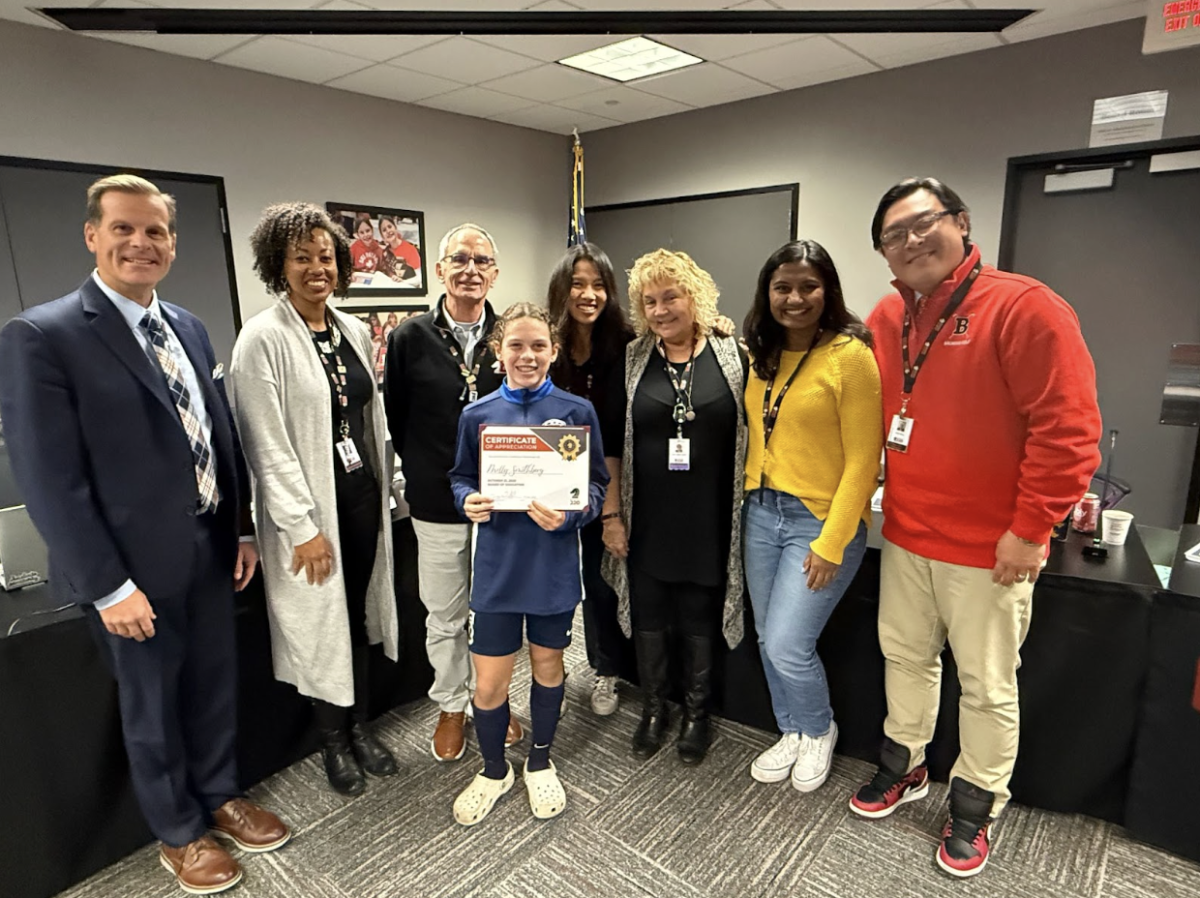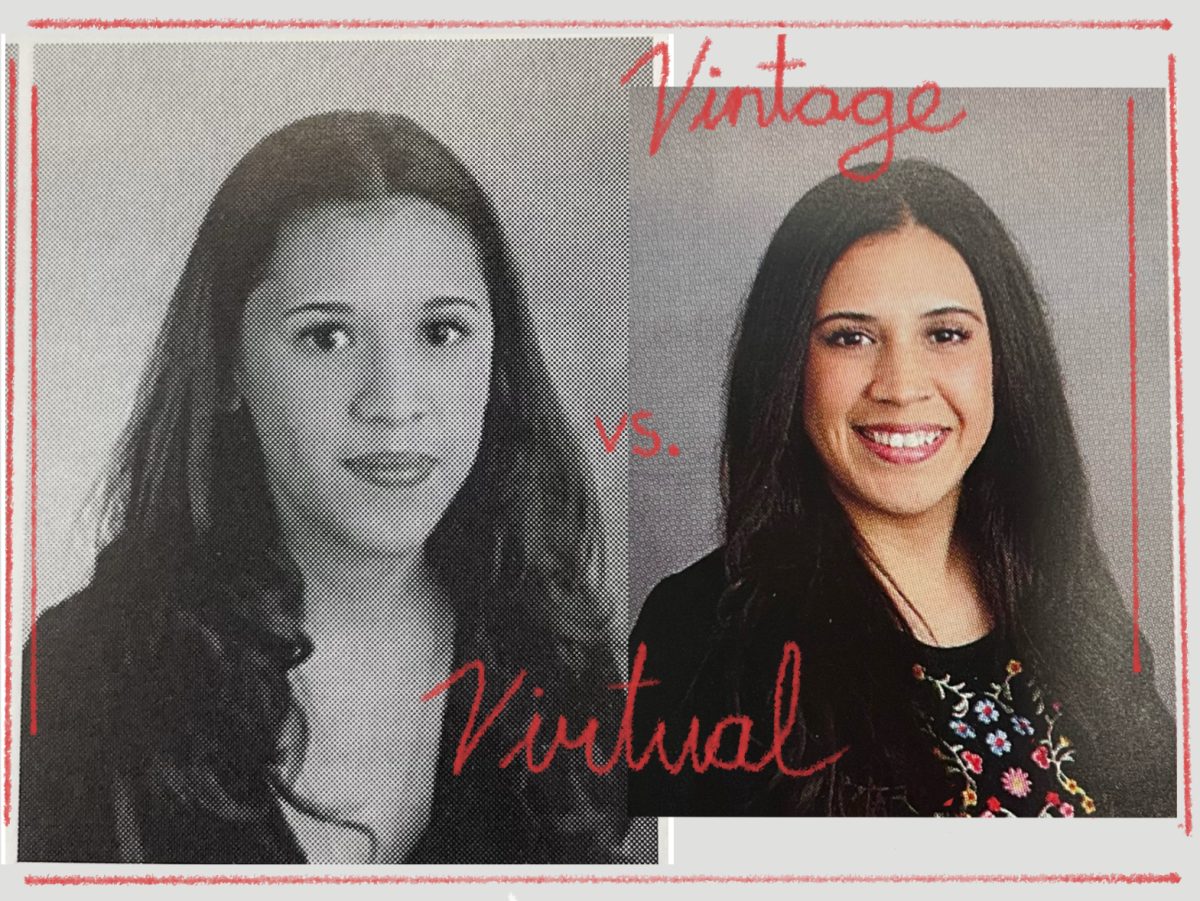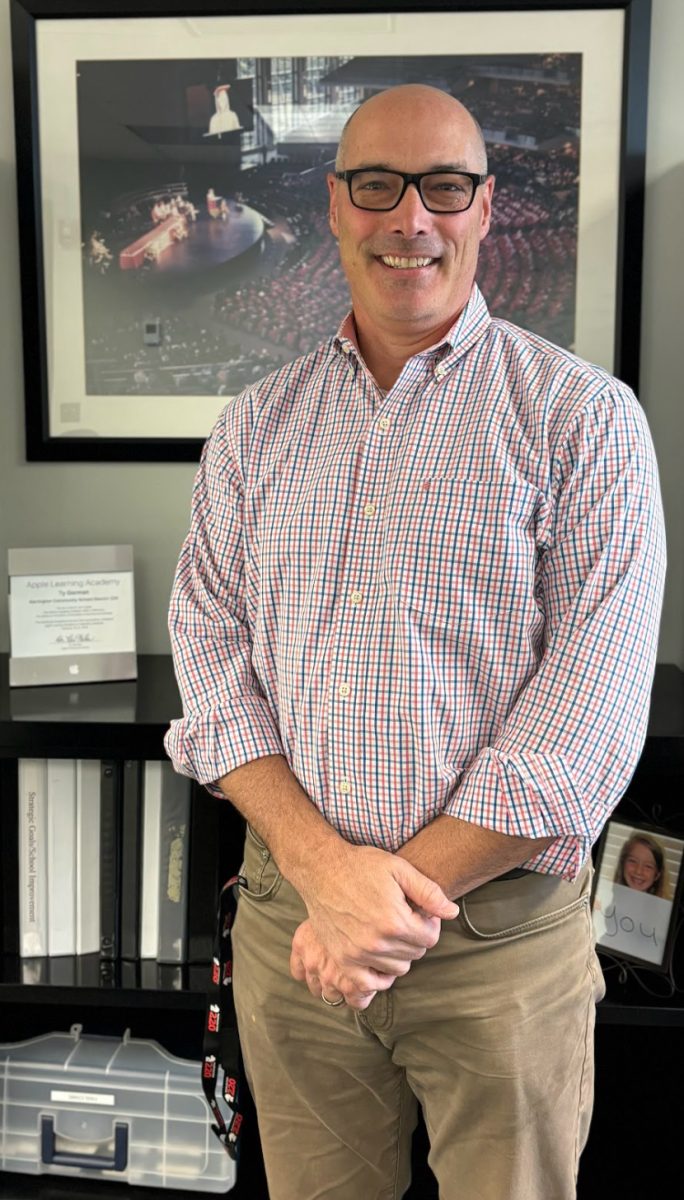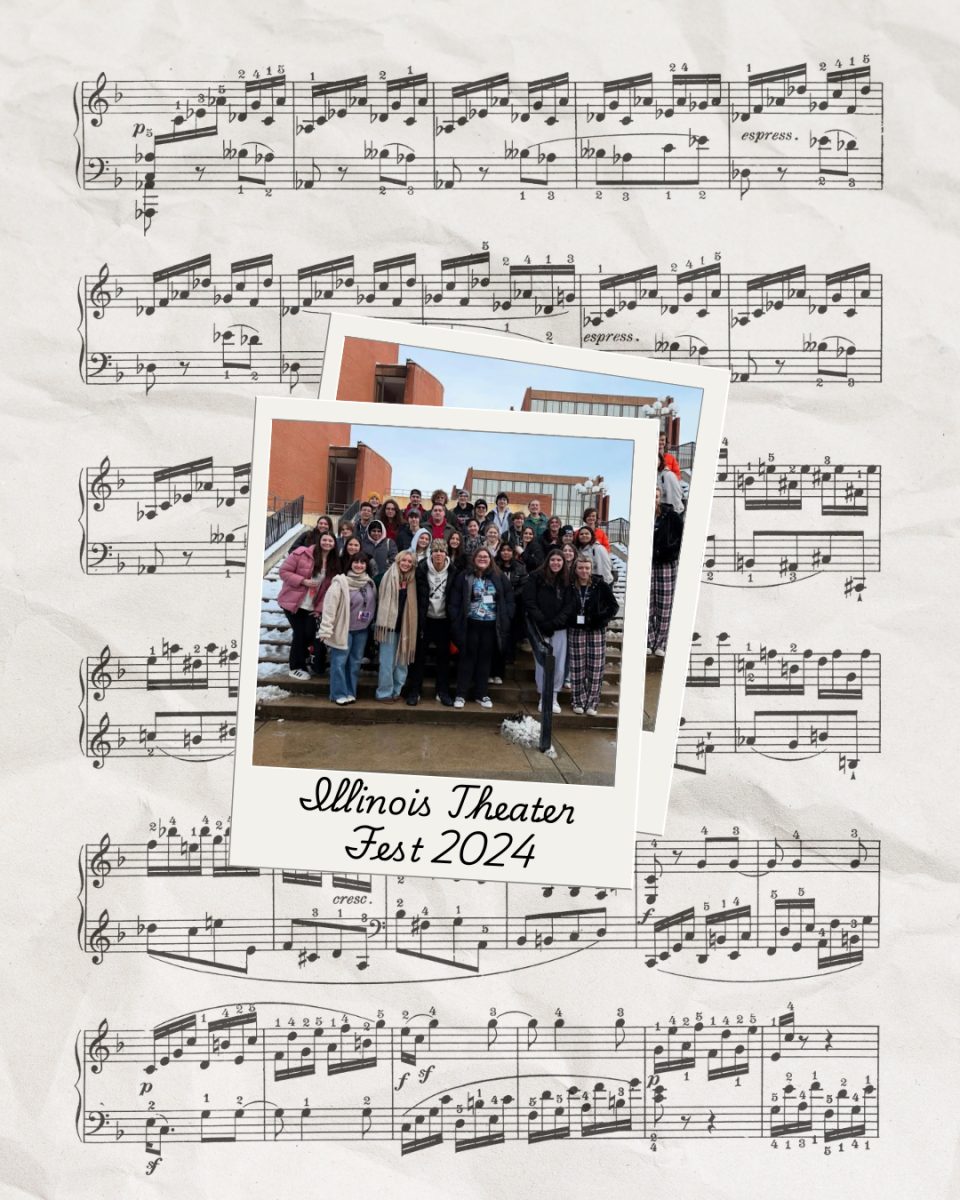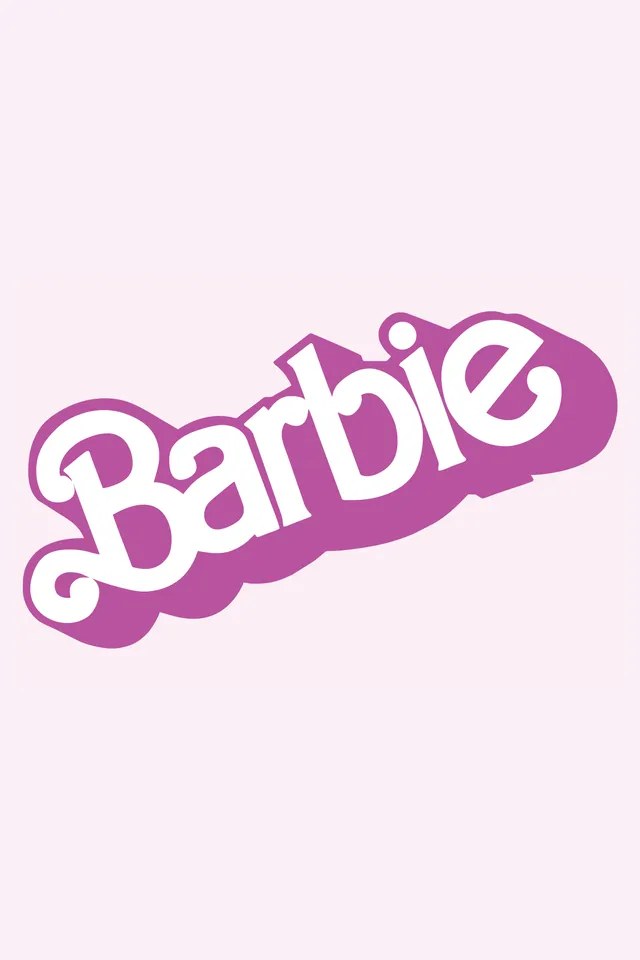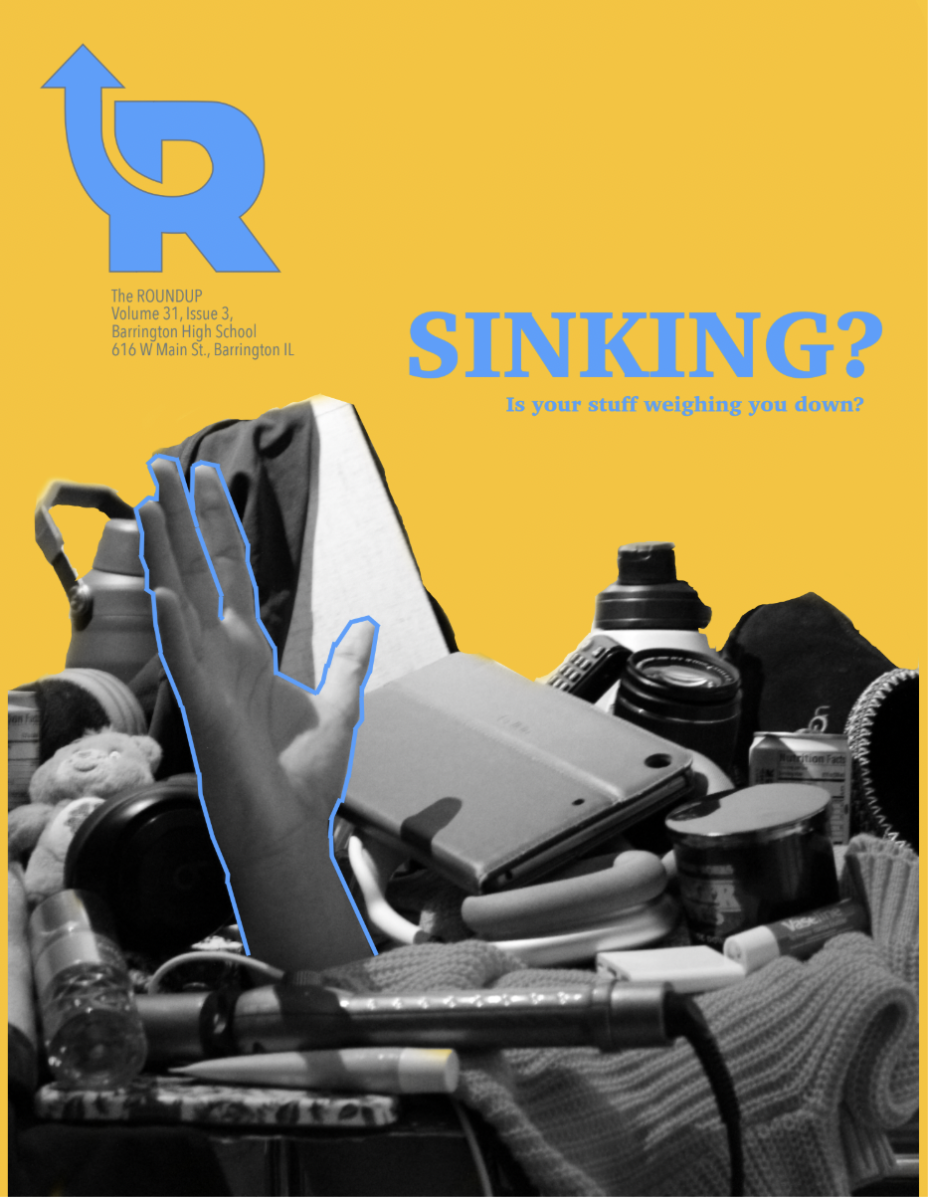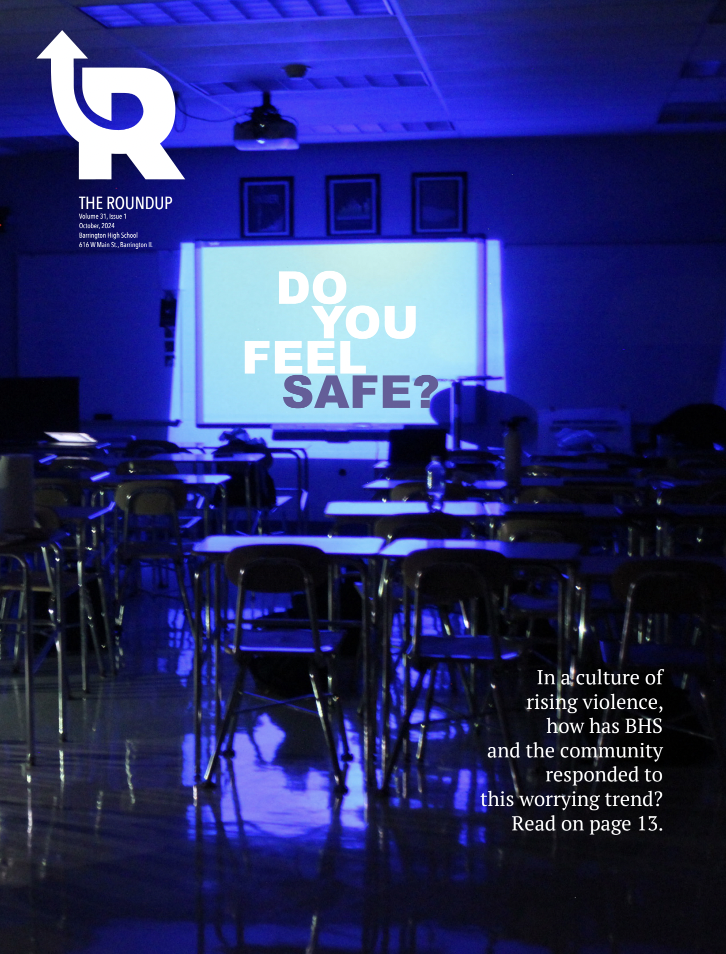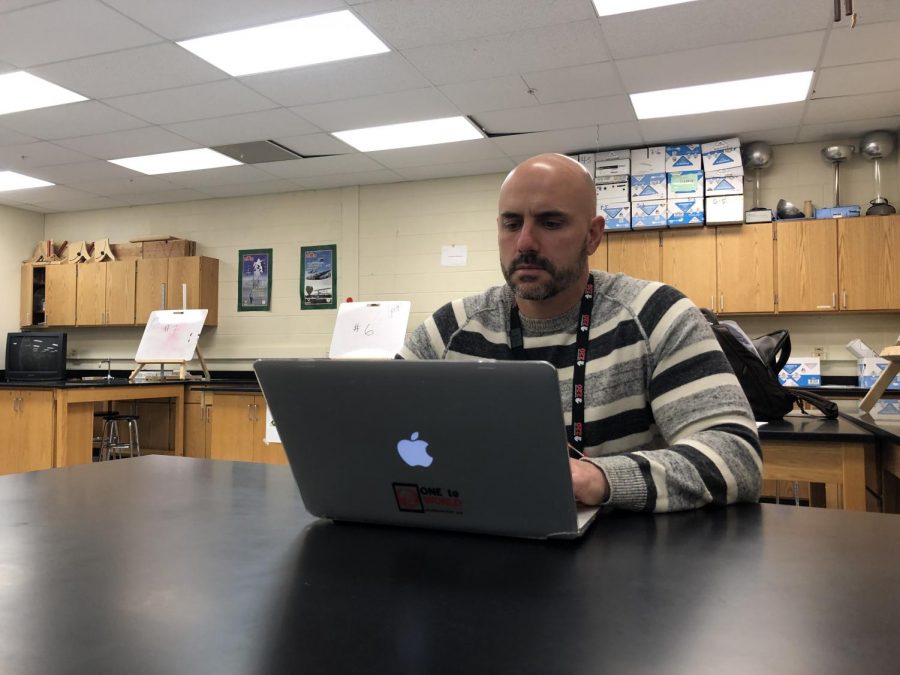Teachers back in school
On most Sunday nights, physics teacher Daniel Carnduff stays up until two in the morning. On Wednesdays, bedtime is normally around midnight. He’s not up binge-watching a Netflix show. Instead, he’s finishing assignments for his Master’s in Educational Technology, which will be his second master’s.
Pursuing a graduate degree is not uncommon among teachers here: doing so means a pay raise and becoming a more qualified educator. But for teachers, this also means balancing their jobs with the additional coursework. Carnduff, who has a nine-month-old and a five-year-old at home, said the process can get hectic.
“I just try to take it all one step at a time,” he said. “I tell this to my students all the time: you can only do one thing at a time, so why worry about five? Worry about what’s in front of you, finish that and then worry about the next thing.”
Similar to Carnduff, biology and chemistry teacher Mary Scotillo acknowledges the stress of finding that balance and creating priorities while pursuing a master’s degree. She said sometimes it can be hard to draw a line between when she should complete which work, and when she should sleep. Fortunately for Scotillo, her master’s program through Washington University is created for teachers.
“My work comes first,” she said. “They understand what you’re going through, they make allowances. If you contact them ahead of time, they’re lenient with due dates. It’s nice to be working with a program that understands what teaching is like.”
This is Scotillo’s third year at BHS, meaning she is not yet tenured, which puts more on her plate as she pursues her degree in biology.
“Not tenured, you have a lot more things that you have to do: more observations and you’re still showing your positive attributes and what you can contribute, so it’s hard to pull back from that and take time for yourself to pursue your degree as well,” she said. “But I wanted to do it now because as I get older, I know maybe I won’t want to do it five years down the road.”
For Carnduff, he said one of his biggest setbacks is his work’s infliction on family time. He does his best to avoid that disruption, which results in the late nights.
“The one thing I really don’t like about this is the time,” he said. “It’s putting in that extra time, it’s time that I could be spending with my girls and instead I’m working on something, or I could be sleeping.”
While both teachers feel stress from their programs and maintaining work and personal life balances, they are interested in the material they’re learning, and say it makes them feel closer to their students.
“It’s interesting going back and being a student again,” Carnduff said. “My last master’s was five years ago now, so even just that little break really puts it back into seeing things from my students’ point of view again. I’m doing things that I would get on my students for doing: waiting ‘til the last minute, not turning in the best thing that I could because I waited ‘til the last minute.”
Getting a master’s degree can make a teacher more knowledgeable in their field and allow them to make greater connections between disciplines, something Scotillo said was a “good thing to have in my back pocket.” Aside from heightening an educator’s mastery of their field, there is also a financial incentive.
“You’re making yourself a better teacher but there’s things that you could do for that to that are free and not quite so time consuming,” Carnduff said. “It’s about making more money and making yourself a better teacher. When you’re doing it this way, it’s kind of a two birds with one stone type of deal.”
As seen by the economic encouragement, the school seems to promote teachers getting graduate degrees. Both Carnduff and Scotillo said they felt support from coworkers and administration.
“They always want you to be better at what you do, but also, schools will, and most districts do this, they help you pay because they want you to keep going,” Carnduff said. “They know that continuing your education will make you a better teacher. They definitely encourage you to do that and to constantly keep moving forward.”
Your donation will support the student journalists at Barrington High School! Your contribution will allow us to produce our publication and cover our annual website hosting costs.



